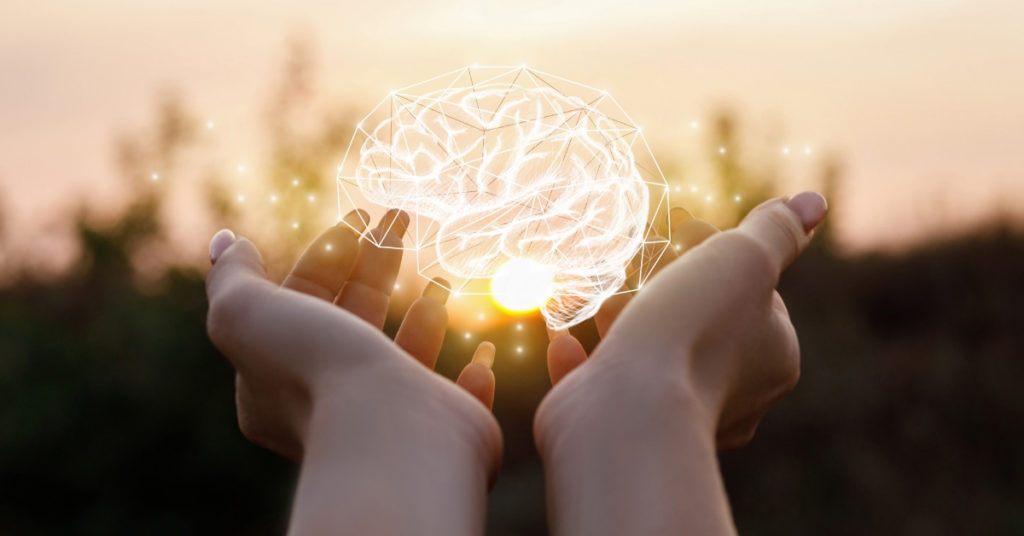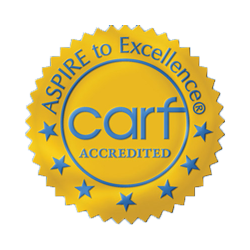Treating Addiction, Depression, and Anxiety Disorders at the Same Time
According to the Anxiety and Depression Association of America, 20 percent of adults who have a mood disorder or anxiety also have a substance abuse disorder. For some individuals who are working to overcome substance abuse or addiction, dependency developed largely as a response to anxiety or depression. Yet, many go untreated for these conditions. For this reason, anxiety and depression are two central topics discussed in our intensive outpatient substance abuse treatment program. For those seeking anxiety and depression treatment in Arizona, Renaissance Recovery Center provides a full-service program designed to help you on the path to recovery. If you have anxiety symptoms, panic disorder, anxiety attacks, or depression, allow our team to help you with outpatient treatment that's modern, compassionate, and effective. Below, we take a look at how anxiety and depression can be linked to addiction.IF YOU OR A LOVED ONE IS SUFFERING FROM ANXIETY OR DEPRESSION, AND ADDICTION, CONTACT RENAISSANCE RECOVERY CENTER IN ARIZONA AT (480) 525-7738 FOR A FREE ASSESSMENT.

What is Anxiety?
Worry, stress, nervousness, and fear are typical feelings to experience every now and again, but for the individual with anxiety, these feelings can truly take over and inhibit everyday living. Anxiety is one of the most commonly occurring psychiatric problems in the U.S and is defined as a nervous disorder that is characterized by excessive uneasiness and apprehension. A more in-depth explanation may shed light on the anxiety disorder symptoms you are experiencing. Classically described as an anxiety attack, a person with this condition may have an overwhelming fear that is intense, debilitating, and seemingly unending. This is a type of emotional disorder that can impact anyone of any age.What Causes Anxiety?
Most people experience anxiety as a normal part of life. Daily stressors cause the hormones in the body to alter the way you react to those stressors. Normally, this is a good thing because it allows the body to put energy towards those activities it needs to manage at that moment to deal with the threat. However, an anxiety attack or a situation in which the symptoms of anxiety are not warranted is not healthy. A variety of factors can cause anxiety disorder symptoms to occur. In some cases, there is a medical cause. Conditions such as the following can sometimes be the first indication of underlying health problems. If you have signs of anxiety, you may wish to determine if there is an underlying medical disorder such as the following present:- Thyroid problems
- Diabetes
- Heart Disease
- Previous drug misuse or abuse
- Drug withdrawal
- Chronic pain
- COPD, asthma, or other respiratory problems
- Sustained scratching
- Dilated pupils
- Stress related to an illness
- Financial health
- Relationships
- Traumatic situations
- Divorce
- Abuse
- The unexpected death of a loved one
Symptoms of Anxiety
Although there are many different types of anxiety disorders, many people with anxiety often exhibit compulsive behavior or panic attacks, and they may experience symptoms such as:- Insomnia
- Fidgeting and restless
- Heart palpitations
- Shortness of breath
- Excessive sweating
- Nausea
- Muscle tension
- Lack of concentration
- Racing thoughts
- Unwanted thoughts
- Irritability
- Heightened sensory sensitivity
- Nervous
- Having a strong urge to avoid all situations that trigger anxiety
Treating Anxiety and Addiction
If you are struggling with addiction, dealing with an anxiety disorder on top of that can be overwhelming and challenging. In order for your substance abuse treatment plan to be effective, you also need anxiety disorder treatment. The two go hand-in-hand. Substance abuse is more common in people who have anxiety. You may turn to substances, such as drugs and alcohol, for several reasons if you are dealing with anxiety:
- You may be using substances like this as a type of anxiety disorder treatment. Many people try to self-manage their symptoms in this manner.
- There are biochemical factors that play a role. Individuals with anxiety tend to have low levels of serotonin, which can impact sleep cycles, metabolism, and energy levels. This has been found to be present in individuals who suffer from mental illness and alcoholism.
- Some people are genetically predisposed to both components.
What should you do? If you are struggling with an anxiety disorder, seek treatment. Learn the difference between a panic attack vs. anxiety attack. Learn what the underlying cause of your condition is. By working with anxiety treatment centers, you can uncover what is happening and how to build your way out of it.

What is Depression?
Feelings of sadness and disappointment are also normal when experienced from time to time. Depression, however, is a serious mood disorder in which the affected individual experiences excessive feelings of despondency and dejection, as well as possibly inadequacy and guilt.Symptoms of Depression
A person with depression might exhibit a variety of symptoms, including:- Change in appetite
- Weight loss or weight gain
- Sleep disturbances
- Lack of energy
- Irritability
- Difficulty concentrating
- Unexplained headaches or back pain
- Loss of interest in most or all normal activities
- Hopelessness
- Mood Swings
- Indecisiveness
- Sadness
- Agitation
- Excessive crying
- Irritability
- Social isolation
- Thoughts of suicide
- Feelings of low self-worth
What Causes Depression?
If you have any of the signs of depression, you may not understand why. This is common. Yet, just like anxiety, the same types of health conditions can impact your depression. In some people who have clinical depression, the underlying cause is not fully understood. For others, it is due to brain chemistry, biological differences, hormones, and genetics. There are many things that increase the chance of depression, including:- Physical, emotional, mental, or sexual abuse
- Certain medications
- Death of a loved one
- Family history
- Major life events such as getting a divorce or losing a job
- Already suffering from a serious illness or medical condition
- Substance abuse
Treating Depression and Addiction
Individuals with depression symptoms can seek help for their condition along with addiction treatment. However, it becomes essential for doctors to treat both substance abuse along with depression. This sometimes means that medication is necessary. However, in all cases, your doctors will focus on addressing the underlying cause. For example, this tends to begin with understanding the cause of the depression and treating any hormone or biochemistry concerns first. Doctors will provide a safe area for you to detox from any substances during treatment. This often exposes a significant amount of the symptoms of depression. It allows for doctors to determine if you should be on medication to treat your depression. And, if so, many people find they do not need to use substance abuse to hide their feelings or to just get through the day. Complimentary treatment like this can be beneficial from a depression point-of-view as well as from a substance abuse need.Other Co-Occurring Mental Health Concerns
Many people suffer from co-occurring mental health disorders. This simply means they suffer from a condition like anxiety and depression. However, there are many more types of co-occurring mental health disorders. Also called Dual Diagnosis, this refers to someone having a mental health disorder at the same time as an addiction. In each one of these cases, if you're suffering from the condition, you may be at higher risk for developing a substance use disorder. And, if you already have a substance abuse disorder, you may be more likely to suffer from one of these types of mental health concerns. Some commonly associated co-occurring disorders include:- Obsessive-Compulsive Disorder (OCD)
- Phobia
- Post-Traumatic Stress Disorder (PTSD)
- Postpartum Depression
- Major Depression
- Manic Depression
- Bipolar Depression
- Social Anxiety Disorder (SAD)
- Generalized Anxiety Disorder (GAD)

Anxiety and Depression Treatment Options at Renaissance Recovery Center
There are several treatment approaches to anxiety disorders, depression, and other mental health challenges. Counseling for depression and anxiety is one of them. Our outpatient treatment plan goals and objectives for anxiety and other conditions are customized and focus on your needs. Take a look at some of the program options we provide to you.- Medication treatment - For some people, the start of treatment focuses on medication. It is not always used. At the beginning of any anxiety treatment, our goal is to help you get through the initial struggles you are having so you can learn coping mechanisms. While anxiety relief may seem to happen with medications, it truly comes from developing methods to cope with what you are experiencing.
- Individual, One-on-One Therapy - For anxiety and depression therapy, a large component of the process is providing you with an individual treatment plan to address what you, specifically, are facing. Individual therapy provides an opportunity for this through one-on-one therapy. You will learn a variety of tools to help you including cognitive-behavioral therapy. This is a method that teaches you how to see the negative thought patterns you experience throughout the day. Once you learn to notice them, you can learn to overcome them.
- Group Therapy - Many people benefit from group therapy. It opens the door for conversations with people who know what you are feeling. They are there to help you, and you to help them, but also to provide examples of how to get through challenging days. Group therapy is a positive experience.
- Family Therapy - A big component of success for substance abuse and anxiety, depression treatment comes from bringing your family in. If the environment at home is not conducive to your wellbeing, you are at higher risk of relapsing. In a safe environment, family therapy can help you to express your feelings, learn how to live with people, and learn the impact of your health to the family. It is a vital component to overcoming your struggles.










